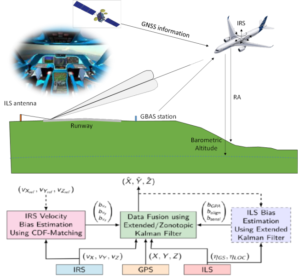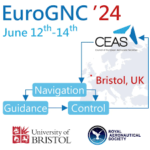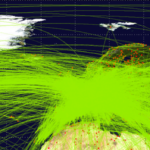I welcome applications for doctoral study and postdoctoral visitors in areas relevant to my research interests for working on challenging scientific projects.
Interested applicants : Possible research topics are: Reachability analysis and safety verification of neural networks — Safety and Security of Intelligent Cyber-Physical Systems: new methods and algorithms — Model-based, set-based and data-driven methods for multi-sensor data fusion in navigation systems, with application to future civil aviation operations — Fault diagnosis, fault management, autonomy and resilience issues in future aircraft systems — Symbolic methods for control of complex and non-linear systems …
I am happy also to consider students’ own proposals. If you are interested in a PhD / postdoc position, please email me.
Postdoc 2022 openings
Dr. Carlos Trapiello (Universitat Politècnica de Catalunya – UPC, Barcelona, Spain) received a research grant from UPC to do a one-year research stay in Bordeaux. See his CV at here.
He will work with Dr. Christophe Combastel and myself on safety and security issues in cyber-physical systems using set membership techniques.
Period : 15 January 2022 — 15 January 2023.
Postdoc 2020-2021 (closed):
Due to coronavirus outbreak, postdoc recruitment in 2020 has been delayed to fall 2020.
- The first call can be downloaded at here. This call is now closed. Dr. Arthour Perodou has been hired since Sptember 2020. See his CV at here.
- Second postdoc position is related to the COCOTIER project. This call is also closed. Dr. Sara Ifqir will be continuing one year more.
postdoc 2019 (closed):
- Sara IFQIR started on December 2, 2019 to work on the COCOTIER Project. See her CV at here.
- After a two-year postdoc position in Bordeaux supported by SysNum, Willy Alejandro Apaza Perez left IMS-lab in May 2020 for L2S-lab (Paris) to continue his research under the supervision of Dr. Antoine Girard. Good continuation Alejandro !







 COCOTIER (COncept de COckpit et Technologies Intégrées En Rupure, 2019-2023) is a collaborative project on new technologies for future intelligent cockpit in Single Pilot Operations (SPO, 2030+). The project is supported by the French Directorate General of Civil Aviation (DGAC) and coordinated by Airbus.
COCOTIER (COncept de COckpit et Technologies Intégrées En Rupure, 2019-2023) is a collaborative project on new technologies for future intelligent cockpit in Single Pilot Operations (SPO, 2030+). The project is supported by the French Directorate General of Civil Aviation (DGAC) and coordinated by Airbus.








 I have given a number of open conferences and interviews for the general public, and participated to panel debates at international or French events. Below some selected ones since 2016:
I have given a number of open conferences and interviews for the general public, and participated to panel debates at international or French events. Below some selected ones since 2016:
 Appeard in the French journal “La tribune”. Theme: Future Single Pilot Operations (2030+), and self-piloting and self-learning planes (2050+). See
Appeard in the French journal “La tribune”. Theme: Future Single Pilot Operations (2030+), and self-piloting and self-learning planes (2050+). See 














